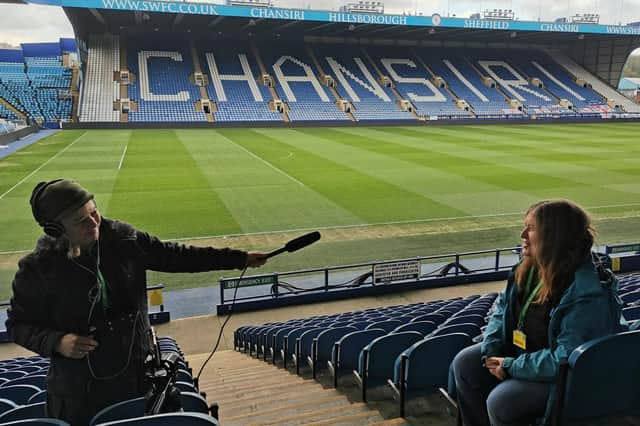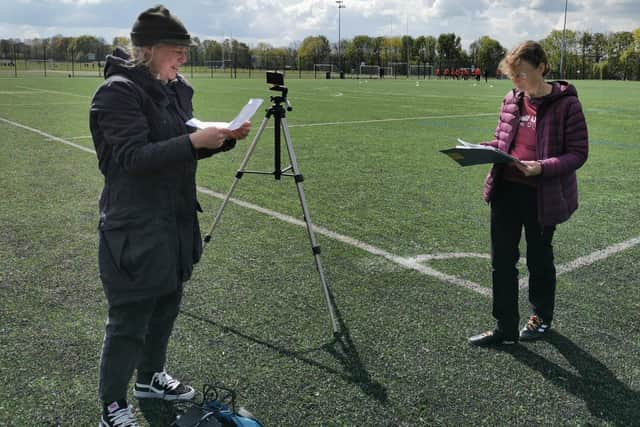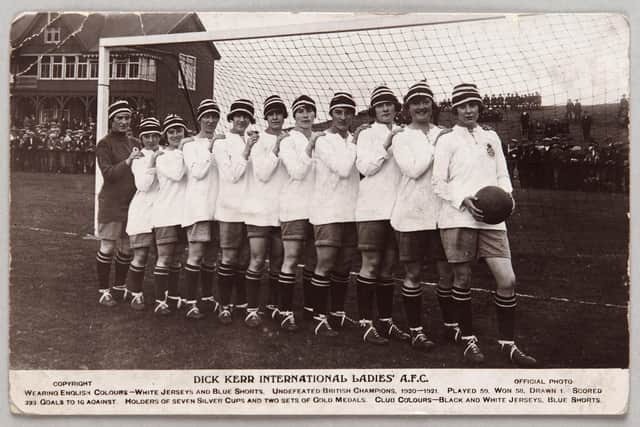Sheffield women's football film looks back to matches that drew crowds of thousands


The short film was made by members of a Sheffield group called Stoppage Time, working with film-maker Laura Page and community arts organisation Ignite Imaginations. The idea is to publicise the project, which aims to tell the story of women’s football in the city in the lead-up to the Women’s Euros tournament next July, when games will be played in Sheffield and Rotherham.
The name Stoppage Time refers to the infamous FA ban on women playing football from 1921 to 1971.
Advertisement
Hide AdAdvertisement
Hide AdIn the film, Ruth Johnson, women and girls' football development worker at Football Unites Racism Divides, FURD women’s team player Sarah Choonara and Star Retro reporter Julia Armstrong (writer of this story) head to some of the spots where early women’s games took place.
They included the Sheaf House pub on Bramall Lane, which used to have a sports ground behind it. One of the very first women’s matches took place in 1895, involving the British Ladies’ Football Club.
They were described as “comely damsels” by the Sheffield Independent newspaper, which said their play was “gentle, amusing and occasionally earnest but mainly lackadaisical, which prohibits all ideas of football being dangerous for ladies to play”.
Many big games took place between the first generation of Women of Steel – workers in city World War One munitions factories, who were encouraged to play sports during their breaks from their hard, dirty jobs.


Advertisement
Hide AdAdvertisement
Hide AdThe film talks about one match that took place at what is now Sheffield United’s training ground on Roe Lane, that used to be a steelworks sports ground. A match there attracted a crowd of 5,000. People who could not get in climbed trees and up on to roofs, resulting in the collapse of part of one old building, injuring several people.
Another game, played on Boxing Day at what is currently Hallam University Sports Park, was watched by 10,000 spectators. The winning goal was scored by ‘Little Fatty’, who made a wall pass with a spectator on her way to the goal.
The biggest crowd of 25,000 spectators watched two non-Sheffield teams – the very famous Dick, Kerr Ladies works team from Preston, who beat Huddersfield Atalanta in an exhibition match at Hillsborough stadium in May 1921.
Seven months later, the FA banned all women’s teams from playing on its members’ grounds. The Stoppage Time team believe this involved men’s ideas about what represents femininity and pushing women back into the home in the years after the war, when the men had returned to take back their jobs.


Advertisement
Hide AdAdvertisement
Hide AdRuth said that many people believe that women’s football has only been going for a few years, which is why Stoppage Time wanted to record this fascinating history.
The project is still very keen to hear from anyone who has been involved in women’s football in Sheffield over the years in any way, shape or form to record their memories – head to furd.org/stoppage-time for contact details. This is also where you can see the film.
